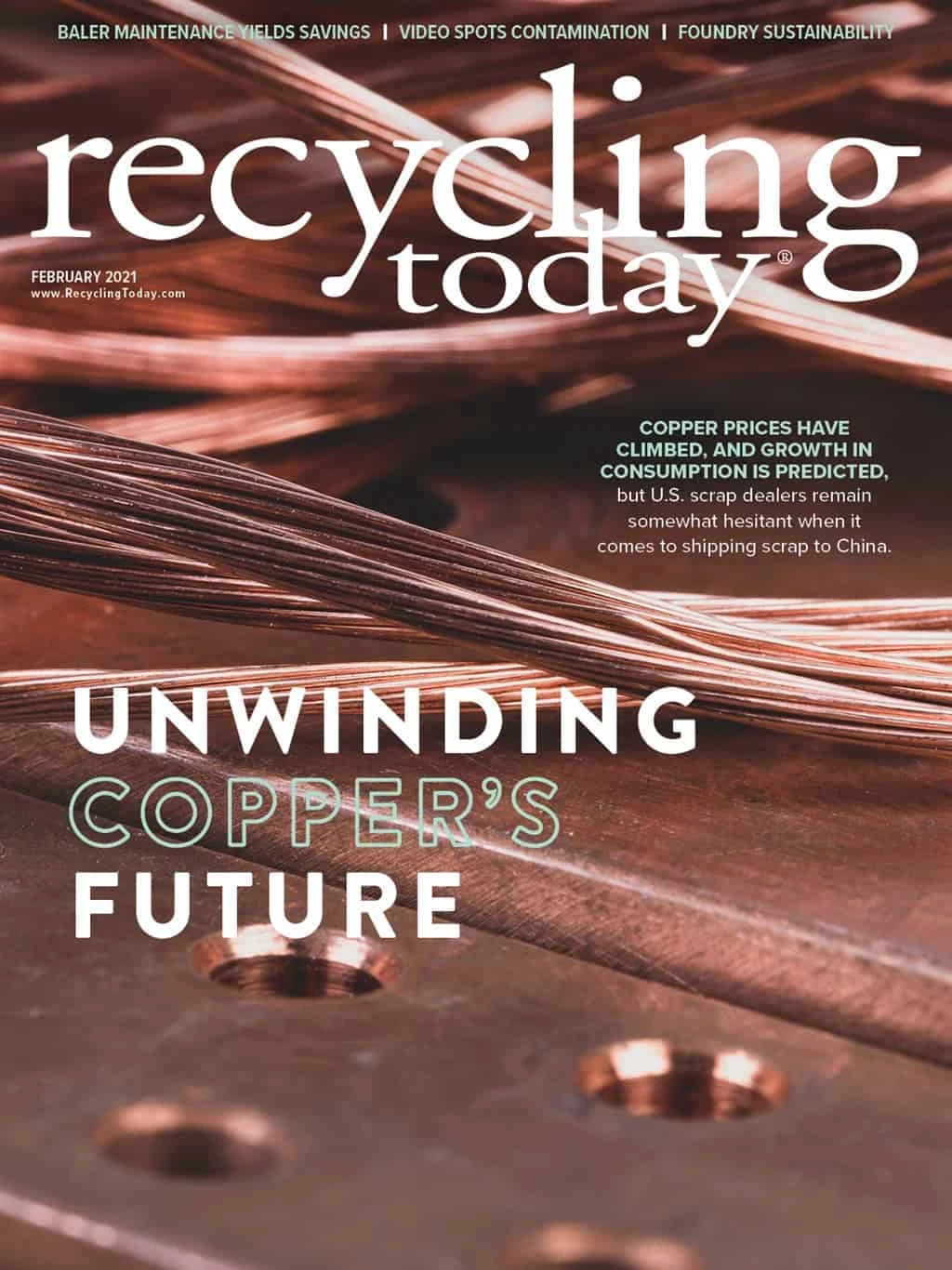Plastic film scrap has seen strong demand heading into 2021, and the availability of polyethylene terephthalate (PET) bottle scrap has tightened. Regardless of which material contacts are sourcing, they say trucking is more difficult to secure and expensive.
“Scrap availability for postconsumer A Grade film is very tight,” says Charlotte Fischer, senior commodities manager for PreZero US Inc.’s Jurupa Valley, California, plant. She attributes that in part to more aggressive buying by consumers in Indonesia, Malaysia and India, the latter of which she describes as actively buying off the West and East coasts. Additionally, Fischer says, “Some LDPE (low-density polyethylene) mills in Taiwan are coming into the market to buy film.”
New domestic consumers also have emerged in California, she says, and are buying trial loads of film as they ramp up reclamation operations.
“The market is getting tighter and tighter,” she says.
As one would expect, pricing for film scrap has increased along with demand.
“Scrap availability for postconsumer A Grade film is very tight. … The market is getting tighter and tighter.” – Charlotte Fischer, senior commodities manager, PreZero US Inc.
Fischer says A Grade LDPE film bales were selling for 10 to 11 cents per pound in the summer of 2020. By the fall, the material was selling in the 13 to 14 cent range. As of mid-January, it is selling for 16 to 17 cents per pound delivered to domestic consumers or FAS to the Port of Long Beach, she says.
Fischer says her colleague who is buying for the company’s South Carolina facility, which is currently reclaiming mixed rigid plastics (MRP), has had no issues securing material. “In the fall, MRP can get pretty tight. He didn’t have that issue this fall going into the winter. There is more than enough MRP to go around.”
A PET bottle reclaimer based in the Midwest says scrap was readily available over the last three to five months following some tightness early in the pandemic. However, supplies began to tighten in January, with a corresponding modest increase in pricing. However, she says pricing is “phenomenally low.”
Paul Bahou, president of PET reclaimer Global Plastics Recycling Inc. in Perris, California, says of scrap availability, “When the weather gets colder, supply is tighter and so pricing goes up.” In California, that tightness has been exacerbated by increased buying out of Mexico, he says, as is the case for LDPE scrap.

Grade A PET bottle bales are selling for 16 cents per pound as of mid-January in the state, he adds, though transportation costs are adding considerably more to the cost of bringing in material.
Bahou jokes that securing a truck costs “a full semester of college tuition.” He adds that rates are “more regional than they used to be,” with long-haul prices having increased significantly. For example, the rate to ship via truck to Texas from California has tripled, he says.
Fischer says she’s seen rates double for long-distance hauls and often increase at the last minute. Availability also is tight.
The PET reprocessor in the Midwest also is having issues with long-distance trucking, which has caused her company to plan further ahead in this area. “We are trying to look two and three days ahead and try not to wait until the last minute.”
Transportation-related issues aside, the PET reprocessor says, “I am looking for 2021 to be a better year than 2020. I don’t think it can be anything but better, but you just never know.”

Explore the February 2021 Issue
Check out more from this issue and find your next story to read.
Latest from Recycling Today
- Toppoint Holdings expands chassis fleet
- Lego creates miniature tire recycling market
- Lux Research webinar examines chemical recycling timetables
- Plastics producer tracks pulse of wire recycling market
- Republic Services, Blue Polymers open Indianapolis recycling complex
- Altilium produces EV battery cells using recycled materials
- Brightmark enters subsidiaries of Indiana recycling facility into Chapter 11
- Freepoint Eco-Systems receives $50M loan for plastics recycling facility





